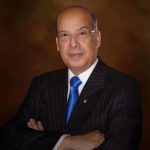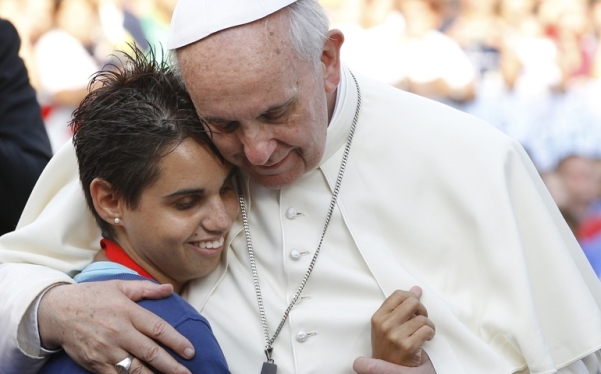Let me admit from the outset that as a baby I was baptized a Roman Catholic and for many years in my early childhood I was a faithful acolyte to priests as they said mass every day. I stopped regular attendance at mass when a priest could not satisfactorily explain to me what I regarded as blatant discrimination and favoritism to a moneyed-class.
The discrimination and favoritism were reflected in pews at the front of the Church, reserved for people with money. Their names were emblazoned on the pews. And, though they seldom came to Church, except for big ceremonies, faithful congregations were left to stand while these pews remained empty.
The explanation that one day at an older age I would understand the economics of the Church did not satisfy me. I saw what looked like discrimination and I opted not to continue to be involved in it, particularly as I had no influence to stop it. My asking questions provided no encouraging response.
I had also found the practices of the Church and its domineering influence on the Catholic school I attended too dictatorial and intrusive. These were not religious teachings. They were strictures imposed by the Church that had nothing to do with God or faith. They were designed to constrain inquiring minds and harness blind adherence to the Church. Among them were compulsory confessions of sins whether they had been committed or not. Reflecting on that period now, I marvel at what possible sins 11 year-old boys and girls could commit that required confession and absolution.
I also look back with some amusement at the notices posted by the Bishop on the Church door every Friday at Noon advising what films at the local cinemas were “unsuitable for good Catholics”. Those notices became an immediate “best seller” list of movies for boys like me who wondered what we were being censored from seeing.
In my adult years, I questioned more of the Catholic strictures. Among them was the ‘defrocking’ of priests who could not sustain their lives without the love of a woman and their desire for marriage. I had four childhood friends who were deprived of their calling to the priesthood because they fell in love with a woman and wished to marry.
In each case, the Catholic Church lost from its service decent men, devoted to the Church, full of Christian charity and firm believers in God. Other Christian religions have no such requirement of their priests and they are no worse for it; indeed they may be better since their priests have the comfort and support of their families in tending to their congregations. The fact is that the requirement for Catholic priests to be celibate was introduced by one Pope based on the fear that the material legacy of the priests, at that time, would be left to their families and not to the Church.
Among other troubling matters is the relegation of women to a life of service as a Nun, but never as a Priest. The blatant, archaic and foolish constraint resonates with discrimination that has echoes of fundamentalist teachings of other non-Christian religions that are condemned for such discrimination. There is, of course, also the matters of abortion and annulment of Catholic marriages. The idea that in no circumstances can Catholics countenance abortion has, unnecessarily, burdened hundreds of thousands of people across the world. The refusal to annul marriages when partners have themselves determined that only unhappiness results from its continuation also takes man-made rules to the point of ridiculous.
As an agent of change for all these arcane practices, Pope Francis is a phenomenal character. That he is a man of personal humility who eschews the trappings and luxuries of high office is well known. But it is his pronouncements and his instructions to the Catholic community and to people world-wide that distinguishes his Papacy. He has brought to his task an enlightenment and a commitment to preach a gospel of change that is timely and courageous. There should be no doubt that, in the hierarchy of the Church, particularly amongst the entrenched establishment, many oppose the positions he has taken.
The meaning of Pope Francis must surely be that he has brought a new vision and a new purpose to the leadership of the Catholic Church from which the world will benefit.
It is known now that the thaw in the cold relations between Cuba and the United States of America was facilitated by the Vatican under his leadership. The establishment of diplomatic relations between these two long-estranged nations and the steps toward normalization had both his active participation and his blessings.
His back-to-back visits to Cuba and the US underscore his interest in the challenges and opportunities of the Western Hemisphere as “a son of this continent”.
Without calling Cuba’s name, he told a meeting of the US Congress: “It is my duty to build bridges and to help all men and women, in any way possible, to do the same. When countries which have been at odds resume the path of dialogue – a dialogue which may have been interrupted for the most legitimate of reasons – new opportunities open up for all. This has required, and requires, courage and daring, which is not the same as irresponsibility. A good political leader is one who, with the interests of all in mind, seizes the moment in a spirit of openness and pragmatism. A good political leader always opts to initiate processes rather than possessing spaces”.
He had no fear in telling the Castro government that there should be religious and political freedom in Cuba, and in urging that the country should become more integrated with the rest of the world.
In this area of US-Cuba relations alone, Pope Francis has made a worthy contribution to peace and development in the Americas. His admonition to the US Congress should be framed in the annals of all time and for all mankind: “If we want security, let us give security; if we want life, let us give life; if we want opportunities, let us provide opportunities. The yardstick we use for others will be the yardstick which time will use for us”.
There is much more to Pope Francis than can be explored in this space, but his meaning to the Catholic Church and to the world as an apostle for better is already clear.
(The writer is Antigua and Barbuda’s Ambassador to the US and a candidate for the post of Commonwealth Secretary-General)
Responses and previous commentaries: www.sirronaldsanders.com



